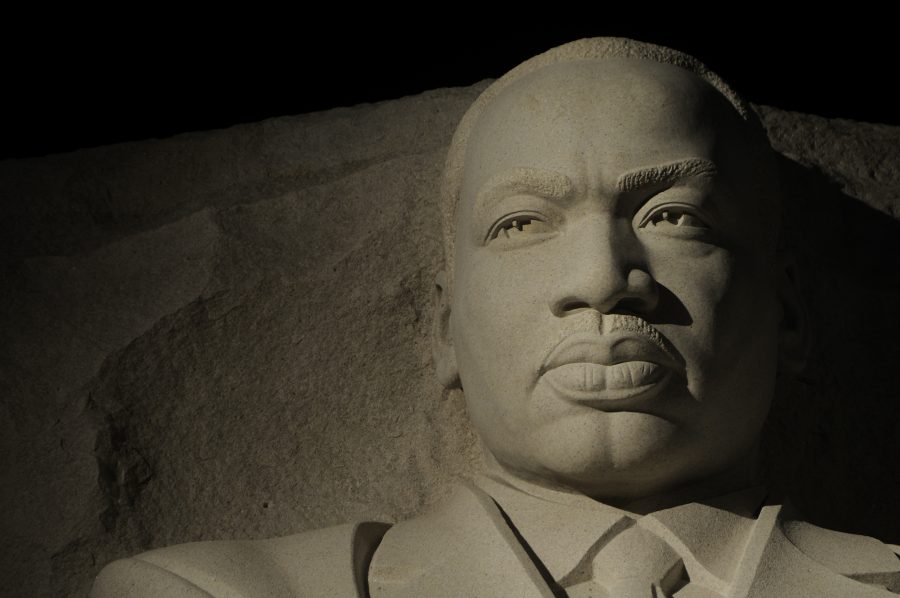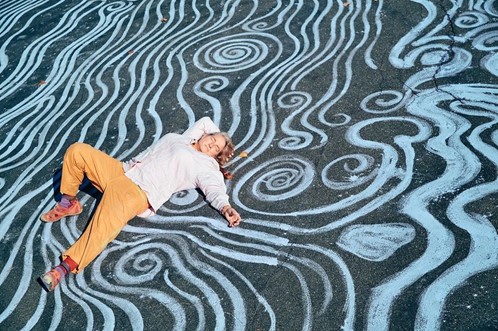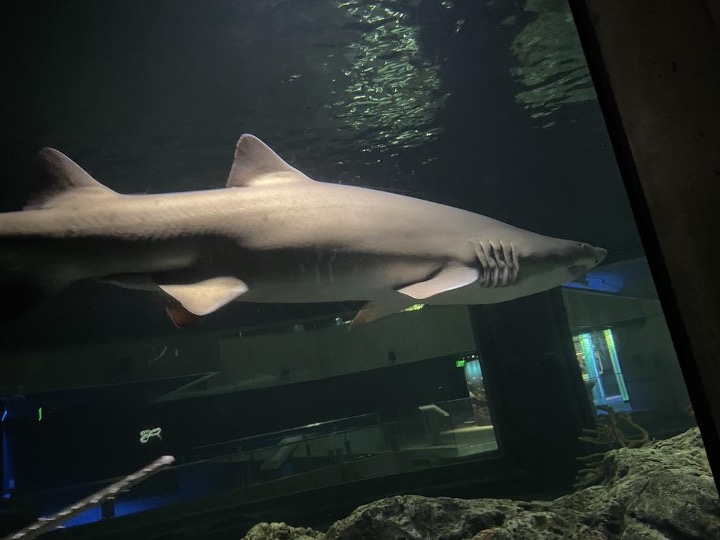Renouned author, historian, and photographer Teju Cole addressed the Loyola community on Monday, Jan. 1 at the 24th annual Martin Luther King, Jr. Convocation. The large audience that filled McGuire Hall consisted of both students and local Baltimore residents. Father Linnane, Loyola University’s President, began the convocation by asserting the importance of “service, reflection, action, and community” in a local perspective. He explained some of the principles of the beloved community as well as Loyola University’s unique position in the city of Baltimore.
Brian Norman, Associate Vice President for Faculty Affairs and Diversity, followed Father Linnane’s address with a heartfelt word concerning some of MLK Jr.’s beliefs and teachings during the years of his life dedicated to the fight for civil rights. Norman honed in on MLK Jr.’s belief that society must raise neighborly concern beyond one’s individual tribe or nation. He also highlighted MLK Jr.’s advice to ask questions rather than yell answers during times of indifference. He ended with the point that progress is never linear nor certain, and he introduced the main speaker – Teju Cole.
Teju Cole is a distinguished writer, art historian, and photographer. He was born in the U.S. in 1975 to Nigerian parents, and he is currently a photographic critic for the New York Times Magazine. He used his impressive skillset to conduct an informative lecture regarding civil rights, both past and present. His unscripted presentation focused on individual photos projected onto a screen. With each photo, Cole brought up an interesting aspect of discussion regarding civil rights and the human condition.
Teju Cole began his presentation by examining how photography works in the world. According to Cole, photography is a way of thinking about and visualizing struggle. He described photography as a technical craft that can also be used as incredible leverage.
Next, Cole discussed the fact that photos contain hidden motives. He projected a gruesome image of a lynching in Indiana during 1930, stating that images like this were actually sold in parts of the south where audiences saw them as depictions of justice. Luckily, once these photos reached the north, they served as disturbing calls for help. Cole explained that photographs are extremely powerful in evoking change because of their undeniable verity.
The presentation went through a wide array of black and white photos. Several images depicted MLK Jr. and the African American experience in the United States during his time. The most recent photo was on the cover of a 2015 edition of New York Times Magazine. It was taken by a Baltimore amateur photographer, Devin Allen, during the 2015 unrest revolving around the death of Freddie Gray. It depicts a young black man running in front of riot police in Baltimore. Cole used this photo to demonstrate that history is very close to us, despite common misconceptions that we are removed from it.
Cole concluded the convocation by fielding questions from the audience. Cole offered a wide range of scholarly advice concerning both of his specializations, writing and photography. Perhaps more importantly, Cole carried out MLK Jr.’s primary mission by offering advice for humanity as a whole. He gave informative suggestions, such as to avoid information toxins, keep up to date with the news, and listen to the world without being deafened by it. In the last question, a local high schooler from the Baltimore region asked how to stand up for those who are bullied by racism. Cole suggested that she take a moment to have a soft word with those who are being harmed by hatred – to let them know they have a friend there to talk. In his last words of the convocation, Cole said that when people are marginalized or belabored, we should not hesitate to jump in the way of harm and stand up for them.
For additional information, visit – http://www.loyola.edu/join-us/mlk-convocation
Photo courtesy of Scott Ableman via flickr.com

















































































































